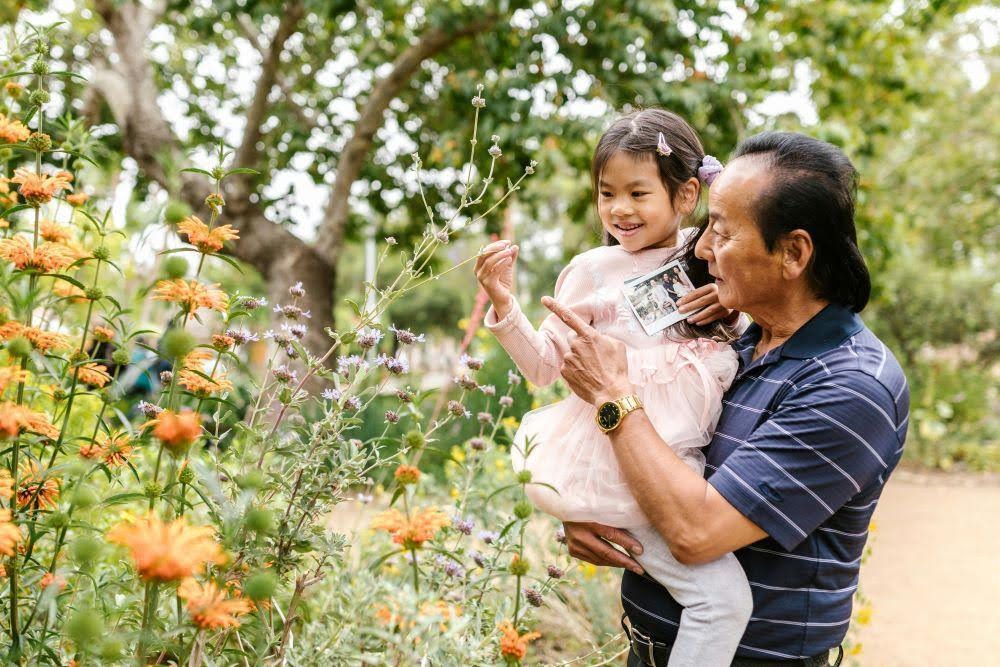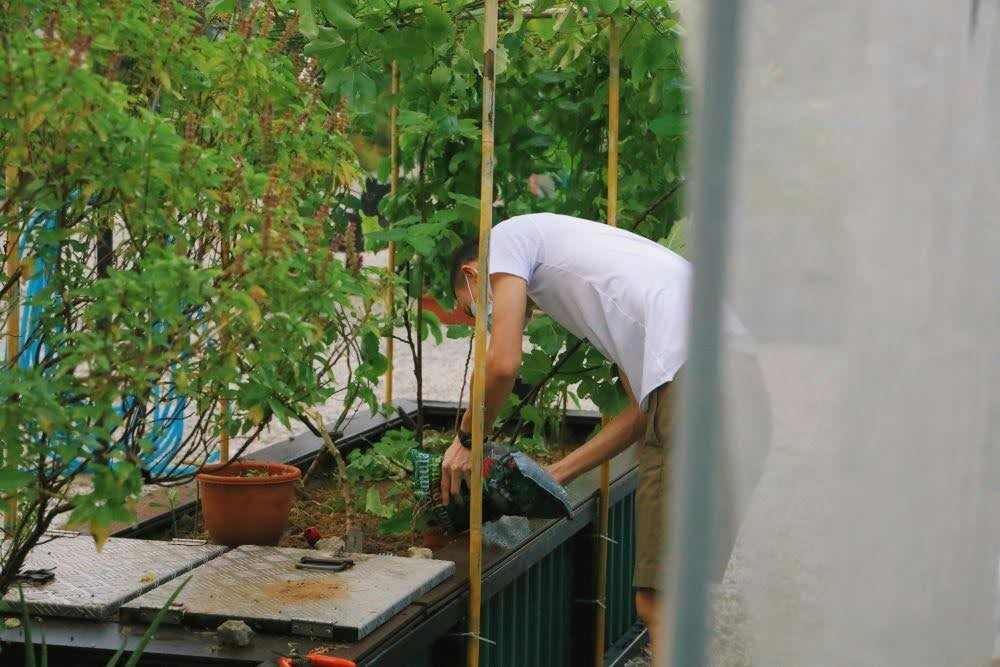
Philanthropy, research, and education have been cornerstones of the National University of Singapore’s mission since its earliest days.
Now, NUS Giving – the University’s philanthropic arm – has launched its latest ‘See The Possibility’ Capital Campaign to grapple with the challenges and questions posed by a rapidly evolving world.
With a focus on future-making through the intersections between higher education philanthropy, cutting-edge multidisciplinary research and community outreach, the five pillars of the Campaign encourage donors to create meaningful impact where it matters.
Join us in exploring the five key pillars of the ‘See The Possibility’ campaign and how your contributions can leave a positive social impact in Singapore and beyond.
1. Healthy Longevity
Life expectancy is on the rise globally, showcasing the progress of medical science and public health systems. However, the focus now extends beyond lifespan to healthspan—the period of good health in one’s life.
Singapore, now the second fastest ageing country in the world, faces the challenge of bridging the gap between lifespan and healthspan. This gap is projected to widen as the population ages, urging a concerted national response.
Multiple teams at NUS are committed to extending healthspan through multidisciplinary research. By understanding the ageing process and developing approaches to manage it, they aim to alleviate the strain on healthcare resources and enable individuals to lead fulfilling lives well into old age.
This means focusing on creating a conducive and holistic environment for healthy ageing that takes social determinants of health into consideration, including social, behavioural, and environmental factors.
To this end, many healthcare initiatives have already been launched under the banner of the ‘See The Possibility’ Capital Campaign to examine technology’s crucial role in enhancing the quality of life for all. This includes the establishment of the Chew Chong Lin Dental Bursary aimed at financially supporting undergraduates at the NUS Faculty of Dentistry; the opening of the Centre for Music and Health (CMH) at the Yong Siew Toh Conservatory of Music (YST) looking into how music supports health and wellbeing; and a pledge of up to S$6 million from the Ngee Ann Kongsi to the Duke-NUS Medical School to support future healthcare leaders and professionals, amongst others.
2. Community and Social Mobility
Education serves as a powerful equaliser in society, offering individuals the opportunity to transcend socioeconomic barriers and realise their full potential. Through the ‘See The Possibility’ Capital Campaign, donors can help provide our students with equal opportunities for higher education regardless of their socioeconomic backgrounds, fostering inclusive communities, equitable opportunities, and shared prosperity.
Beyond academic excellence, the University recognises the importance of holistic development and strives to create inclusive learning environments that nurture students’ intellectual curiosity, creativity, and social consciousness. While inequities in access to education, healthcare, and economic opportunities may persist, they are not immutable or insurmountable challenges that can never be overcome.
Through outreach programmes, mentorship initiatives, and community partnerships, the University seeks to equip individuals with the knowledge, skills, and resources needed to overcome systemic barriers and achieve their academic and research aspirations. By fostering a culture of empathy, inclusivity, and philanthropy in higher education, such social impact initiatives endeavour to build a more equitable and cohesive society that will have positive spillover effects beyond the University’s walls.
Scholarship and financial aid schemes are some of the key linchpins in supporting the University’s students throughout their studies, be it via faculty-specific programmes like the NUS Business School Alumni (NUSBSA) - Yeo Mui Ean Bursary (set up by NUS Business School Alumni Mr Chua Hung Meng in his late wife’s honour) or university-wide bursaries like the Higher Education Bursary and NUS Donated Bursary awarded to students like Mr Sim Jian Wen (Social Work ’23).
By contributing to such programmes, donors can ensure that all students gain a chance to access and excel in quality higher education – providing them with the chance to give back to the community later on.
3. Innovation and Enterprise
As the world enters the fourth industrial revolution, NUS is committed to fostering a culture of support for entrepreneurship that drives breakthrough discoveries, fuels economic vitality, and addresses pressing societal challenges.
Nonetheless, the journey from idea to impact requires more than just innovative ideas; it necessitates a supportive ecosystem and robust infrastructure to nurture and scale ventures. As such, NUS has established a vibrant ecosystem of innovation and entrepreneurship that spans academia, industry, and government.
From incubation spaces and accelerators to mentorship programmes and funding opportunities, the University and its donors provide aspiring entrepreneurs with the resources, networks, and guidance needed to turn their ideas into reality. International exchange programmes, global immersion experiences, and other cross-border collaborations also empower entrepreneurs to tap into diverse markets, forge strategic alliances, and scale their ventures globally for the greatest social impact possible.
From funding household names like the homegrown mobile-first C2C marketplace Carousell to supporting events like InnovFest x Elevating Founders Asia with attendee numbers in the thousands, this pillar of the ‘See The Possibility' Capital Campaign is committed to empowering students to become leaders and changemakers in the global innovation ecosystem, driving breakthrough discoveries and shaping the future of technology.
4. Urbanisation & Sustainability

Urbanisation and sustainability are intricately linked, shaping the future of cities and communities worldwide. As urban populations continue to grow, the need for sustainable urban development becomes increasingly urgent.
Issues such as food insecurity, water scarcity, dwindling biodiversity, and rising sea levels have dire implications at home here in Singapore as well as abroad. In order to combat these concerns, NUS is committed to supporting sustainability initiatives in Singapore that promote environmental resilience and improve the quality of life for urban dwellers.
Be it developing resource-efficient food systems, leveraging nature-based solutions for biodiversity conservation, or harnessing the power of science in ensuring sustainable water management practices, this pillar of the ‘See The Possibility’ Capital Campaign supports the advancement of technology for the advancement of humanity as a whole.
Pursuing sustainability-focused research and initiatives not only allows society to establish a more secure future for Singapore, but also strengthens the resilience of our regional neighbours in the ASEAN and APAC regions who are amongst the most highly exposed to climate change. The University’s new Centre for Hydrogen Innovations (CHI), for instance, pursues breakthrough technologies in the field of hydrogen-based green energy. Whereas the ArClab ‘living laboratory’ examines the interplay between sustainability and heritage conservation – a crucial field for a region as historically rich as Southeast Asia.
5. Smart Technology & Connectivity
This fifth and final pillar of the ‘See The Possibility’ Capital Campaign recognises the transformative potential of smart technology and connectivity in reshaping industries, enhancing quality of life, and driving sustainable development.
Through cutting-edge research, innovative initiatives, and collaborative partnerships, the University aims to harness the power of technology to build a smarter, more connected future for all. From renewable energy technologies to telemedicine platforms, research and development teams powered by NUS are harnessing the power of technology to create impact in areas as diverse as environmental sustainability, public health, and social equity.
At the same time, while technology has the potential to bring about immense benefits, it also poses certain risks and challenges, from cybersecurity threats to ethical concerns. Tech initiatives pioneered under this pillar should simultaneously seek to develop strategies and solutions to prevent the misuse of technology, promote responsible technology use, protect digital privacy, and foster a culture of digital literacy and resilience. In doing so, researchers and entrepreneurs in the digital sphere can ensure that innovation remains a force for positive change in Singapore society.
From NUS’ partnership with Schmidt Futures to support AI-driven postdoctoral STEM research to the partnership with New Zealand charity Wings Trust to set up the Wings Scholarship for female STEM undergraduates in NUS; NUS’ tech initiatives are stronger when they recognise technology as a powerful force for social good.
Through these five pillars, the 'See The Possibility' Capital Campaign embodies NUS’ commitment to shaping a brighter future through philanthropic opportunities. With your support, we can continue to drive social impact initiatives and create a better world for generations to come.
Find out how your alumni giving, staff giving, annual giving, or legacy giving can contribute and make a difference today.






